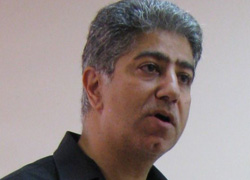Sala 4.1E06, Departamento de Telemática, Edificio Torres Quevedo, Universidad Carlos III de Madrid, Avda. Universidad, 30, 28911 Leganés – Madrid
Abstract:
Cognitive radio networks (CRNs) involve extensive exchange of control messages, which are used to coordinate critical network functions such as distributed spectrum sensing, medium access, and routing, to name a few. Typically, control messages are broadcasted on a pre-assigned common control channel (e.g., a separate frequency band, a given time slot, or a spreading sequence). Such a static channel allocation policy is contrary to the opportunistic access paradigm. In this work, we address the problem of dynamically assigning the control channel in CRNs according to spatiotemporally varying spectrum opportunities. We propose a cluster-based architecture that allocates different control channels to various clusters in the network. The clustering problem is formulated as a bipartite graph problem, for which we develop a class of algorithms that provide different tradeoffs between two conflicting factors: number of common channels in a cluster and the cluster size. Clusters are guaranteed to have a desirable number of common channels for control, which facilitates graceful channel migration when primary-radio activity is detected, without the need for frequent re-clustering. We use simulations to verify the agility of our algorithms in adapting to variations in spectrum availability.
(This work is joint with Loukas Lazos and Sisi Liu, University of Arizona).

La conferencia se impartirá en inglés

